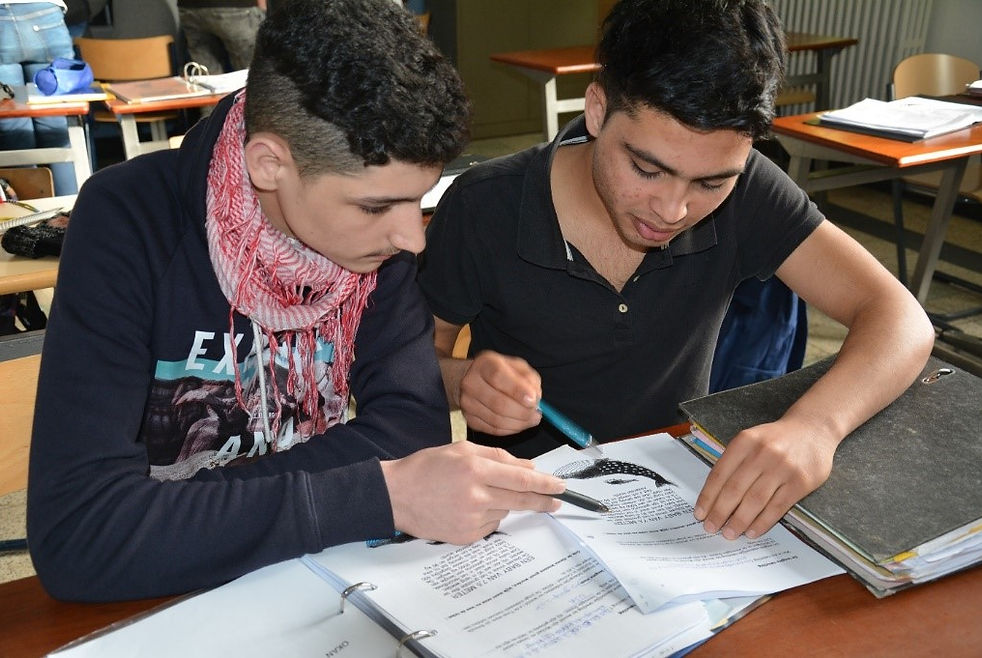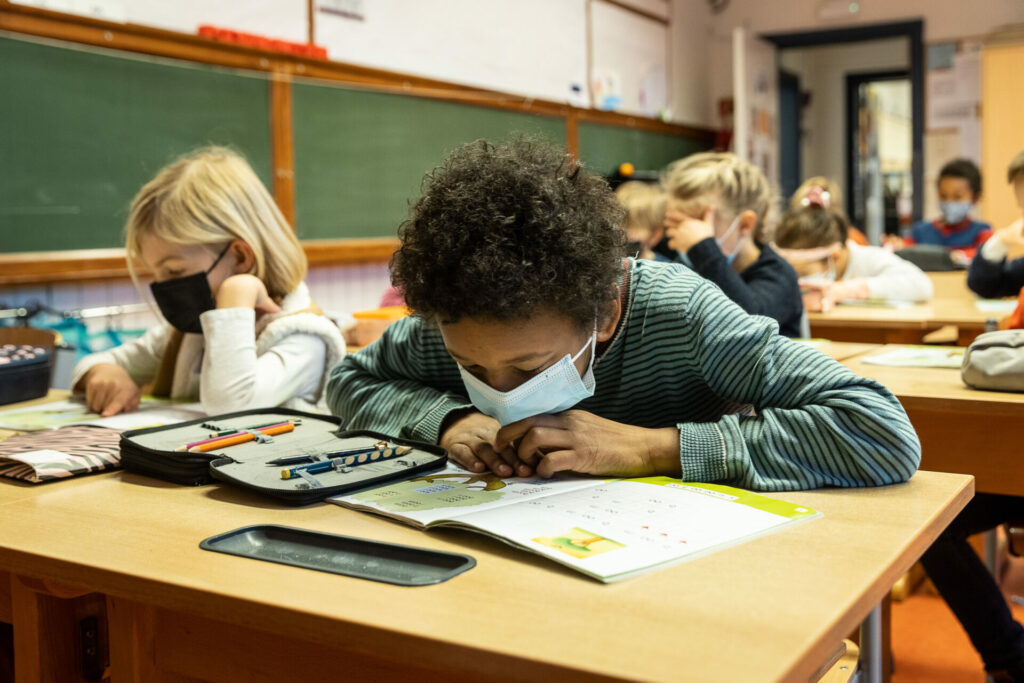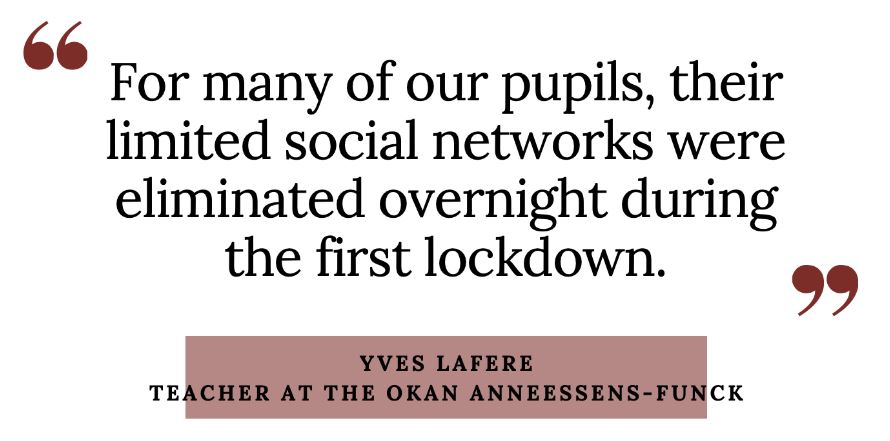While the pandemic had a negative impact on the mental wellbeing and education of many children, foreign-speaking pupils in Belgium, who often have no social network and have little to no IT knowledge, were particularly badly affected.
A recent VUB research found that the pandemic and measures taken to curb infections such as lockdowns had a "huge impact" on children aged 12 to 18 in Dutch-speaking reception education for non-native children (OKAN) schools, with long-term consequences.
"For some of the OKAN pupils, the pandemic years were simply lost years," Professor Tom Vanwing, supervisor of the research carried out by master's student Rayyan Helawi, said.
Whereas many of the most vulnerable foreign-language pupils booked unexpectedly good results in 2019 before the pandemic, their well-being declined sharply as a result of the many lockdowns and the social exclusion they experienced as a result of it.
Reduced social network
In OKAN schools, newcomers from different countries follow a learning programme tailored to their needs and focused on the Dutch language. A lot of attention is also paid to social integration at school and brushing up pupils' knowledge of general subjects.
Most students at these schools arrived in Belgium very recently, which is why they were particularly fragile following the abolition of physical lessons in March 2020, according to Yves Lafere, a teacher at the OKAN Anneessens-Funck in Brussels.
"They do not have any social network to fall back on. Their first (and often only) point of contact in Belgium is their OKAN teacher or their classmates, which is why many of our pupils like being at school. During the first lockdown, this limited network was eliminated overnight," Lafere told The Brussels Times.
Vanwing highlighted that whereas 57.3% of pupils still felt relatively good about themselves before the crisis, that percentage dropped to 32.1% during the pandemic (in 2020), while the number of pupils who felt distinctly bad rose to 35.9%.
Challenging living conditions
For many others, their physical well-being and their self-esteem seriously deteriorated.
"With a number of them, you also noticed that their structure and daily schedule were completely gone: gaming late into the night was no exception for many pupils. It also seemed to us that it was often difficult for the parents to get a grip on this," Lafere noted.
He added that many of his pupils do not live in the most comfortable of circumstances, and often found themselves stuck in small rooms with a large family throughout the day, "often with nothing more than their mobile phone to keep them occupied."

Credit: Hasp-O Centrum OKAN
Some pupils lived in migrant reception centres, where the daily rules of life were quite strict during the pandemic.
Learning lessons
Aside from the social and emotional aspects that resulted in foreign-language students being worse off throughout 2020, there were also various practical aspects that impeded the level of education they received.
"A large proportion of these students were not only poorly educated until they arrived here, but also hardly had any knowledge of IT. In a manner of speaking: some could not even turn on a computer, let alone know anything about e-mail or Zoom," Lafere explained.
His school worked with postal packages of homework which were delivered in person. Students sent pictures via WhatsApp showing the work they had done.
Related News
- Some French-speaking schools forced to refuse prospective students
- Psychologists to offer therapy sessions to school students
"WhatsApp was our only medium in those first months, and for many pupils this contact was difficult. Some did not respond for days, or submitted incomplete homework. Other students were looking for more explicit contact, and liked to phone each other and talk about their day," Lafere said.
Fortunately, OKAN Anneessens-Funck was able to start full-time education in September 2020. "In my opinion, this was the only right solution for our target group and their well-being." The school is now also teaching self-reliance in terms of IT earlier on in the year, while enough laptops are made available in case certain classes need to be quarantined unexpectedly.
Vanwing suggested that in light of the time that many pupils lost out on, the government should consider "extending the programme for that group by a year."


